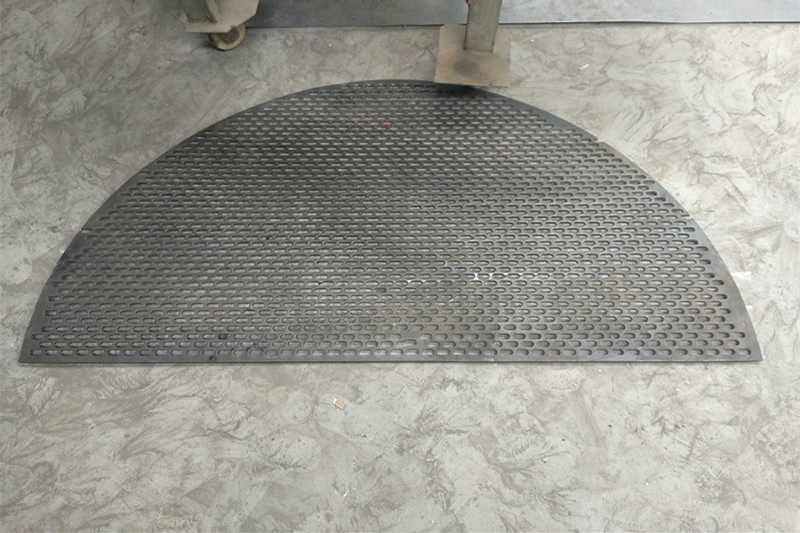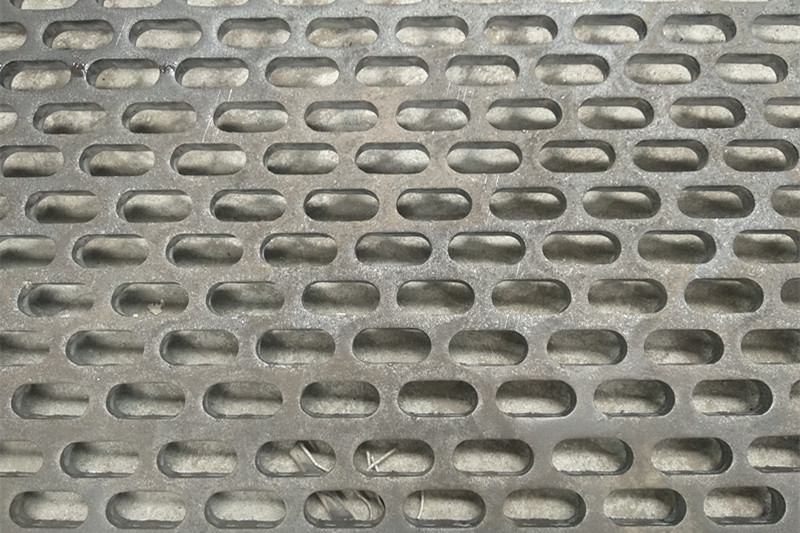Thickened Perforated Sieve Sheet Detailed Introduction
Source:www.cn-psp.cnAuthor:河北森驰公司 Last updated:2025-06-11 18:50:24 Browse:
Thickened perforated sieve sheet refers to a perforated metal plate made by punching holes into thick metal sheets. Known for their excellent strength and durability, these sheets are widely used in industrial manufacturing, petrochemical processes, mining screening, mechanical equipment, environmental filtration, and other demanding applications.
1. What Is a Thickened Perforated Sieve Sheet?
A thickened perforated sieve sheet is manufactured by perforating thick plates, with commonly available thicknesses including 4mm, 5mm, 6mm, 8mm, 9mm, and 10mm. Other non-standard thicknesses can be customized upon request. By applying advanced punching technology to thicker materials, the sheet maintains excellent mechanical strength while achieving optimal airflow and filtration performance.
2. Materials Used for Thickened Perforated Sieve Sheets
The most commonly used materials include:
Mild steel plate
Thick iron plate
Stainless steel plate (such as 304, 316, etc.)
Aluminum plate, galvanized plate, and other metals depending on application needs
Each material offers different levels of corrosion resistance, strength, and processing characteristics. We help clients select the most suitable material based on the operating environment and budget.

Thickened perforated Sieve sheet
3. Hole Diameter Design and Punching Considerations
When designing perforated sheets, the hole diameter should be no smaller than the material thickness to ensure the punching mold is not damaged and to avoid material deformation during the process.
Small Hole Principle: Hole diameter ≥ Plate thickness
Customizable hole types: Round holes, square holes, slotted holes, etc.
Hole pattern layouts include:
Straight row
45-degree staggered
60-degree staggered
Smaller hole diameters on thick plates increase processing difficulty and require higher mold precision and equipment strength. Factors such as material hardness, density, and machinability also significantly affect the complexity of manufacturing.

Thickened perforated Sieve sheet
4. Standard Sizes and Custom Options
Our standard sheet size is:
1000mm × 2000mm (1m × 2m)
We also support custom manufacturing for non-standard sizes, hole patterns, and edge margins to suit diverse customer applications.
Whether you're ordering large production runs or small trial samples, we can flexibly arrange production to meet your exact specifications.
5. Surface Treatment Options
To enhance the corrosion resistance and lifespan of thickened perforated sieve sheets, we offer a variety of surface treatment methods:
Spray painting
Hot-dip or cold galvanizing
Electrostatic powder coating
Rust-proof oil application
Polishing or passivation (for stainless steel materials)
Each treatment is selected based on the environmental conditions and required aesthetic. For outdoor or moist environments, galvanizing is recommended. For decorative use, powder coating ensures a visually appealing finish.

Thickened perforated Sieve sheet
6. Factors Affecting the Price of Thickened Perforated Sheets
Pricing varies depending on several factors:
Material and thickness: Thicker, higher-quality materials cost more
Hole size and layout: Fine patterns or staggered designs are more complex
Open area ratio: Higher perforation rate reduces material use but increases production complexity
Surface treatment: Anti-corrosion coatings or finishes add to costs
Order volume: Bulk orders enjoy better pricing
Custom specifications: Customization may incur higher costs than standard products
We ensure competitive pricing while maintaining exceptional quality standards across all orders.
7. Wide Range of Industrial Applications
Thanks to their structural integrity and reliable filtration capacity, thickened perforated sieve sheets are commonly used in:
Filtration equipment for oil and chemical plants
Mining screening machines
Protective covers for heavy-duty machinery
Ventilation panels in metallurgical equipment
Filtration systems in waste treatment and incineration plants
Agricultural grain sorting
Decorative architectural facades and wall cladding
Even under harsh operating conditions, thick perforated metal plates maintain stability and resistance to corrosion, making them indispensable components in modern industrial systems.


